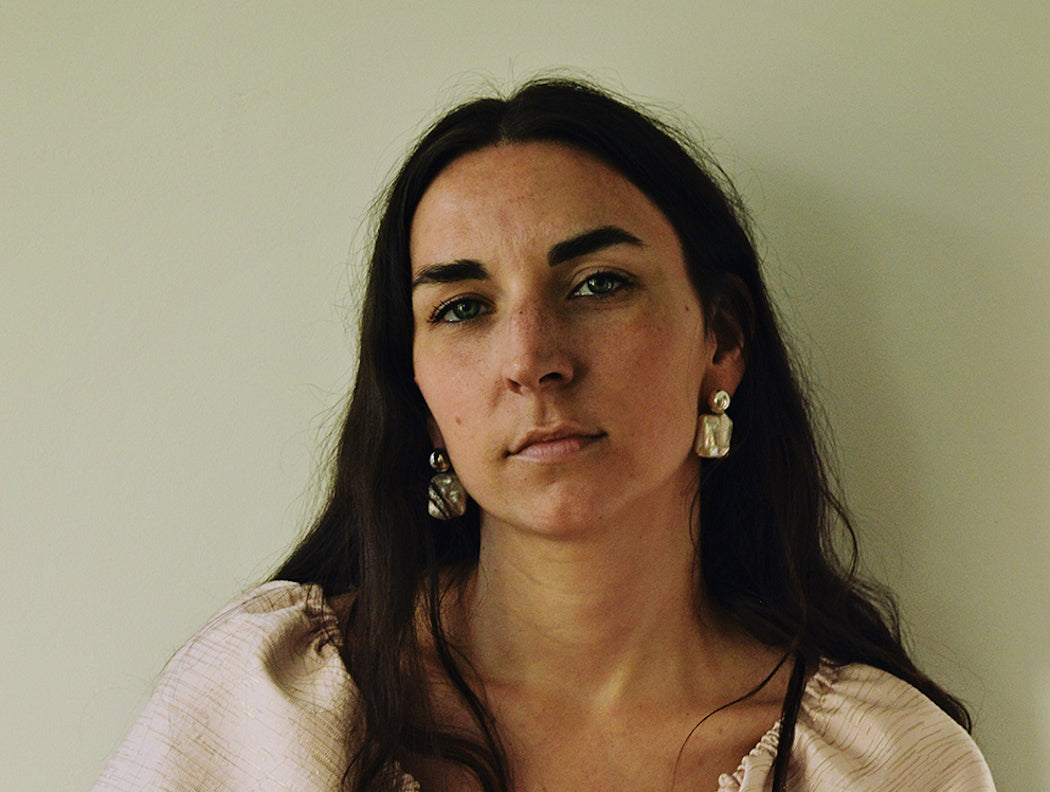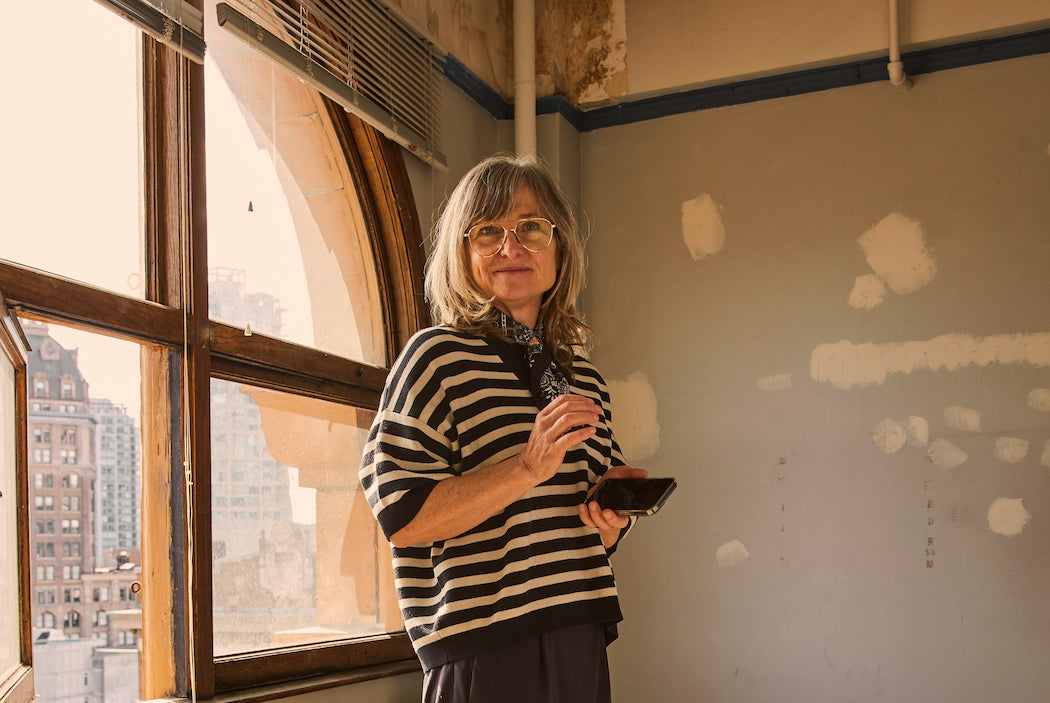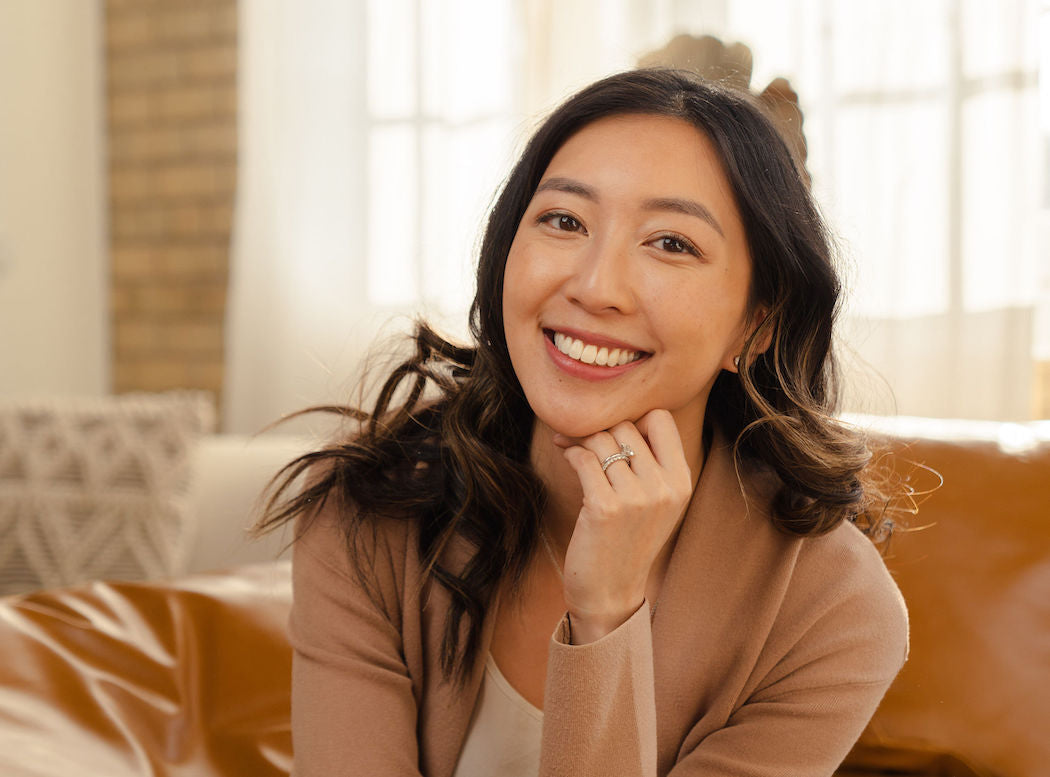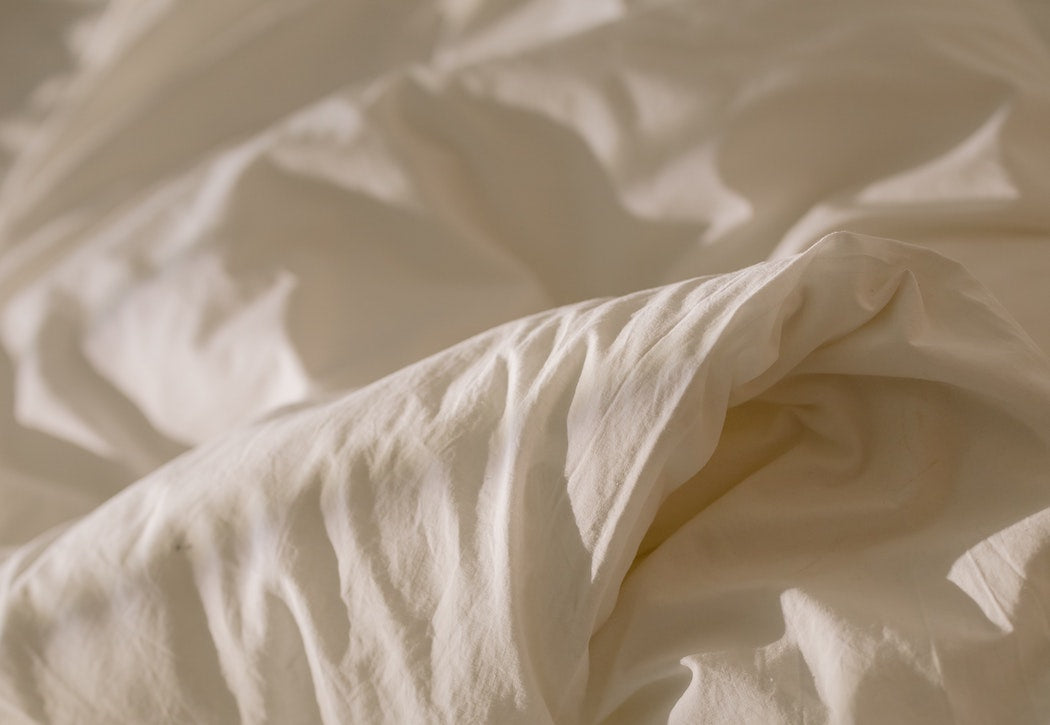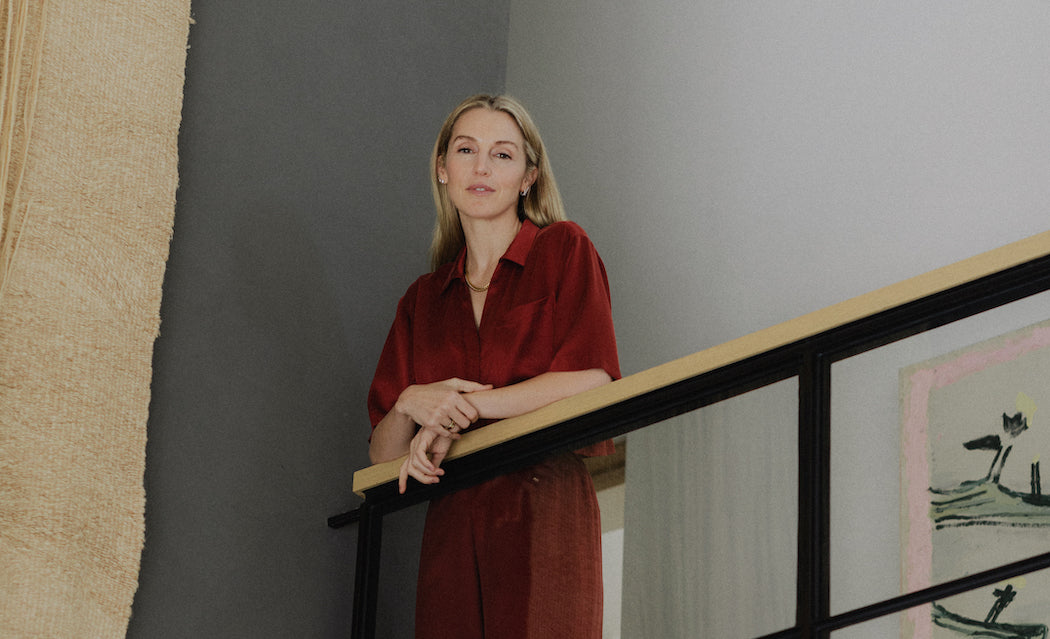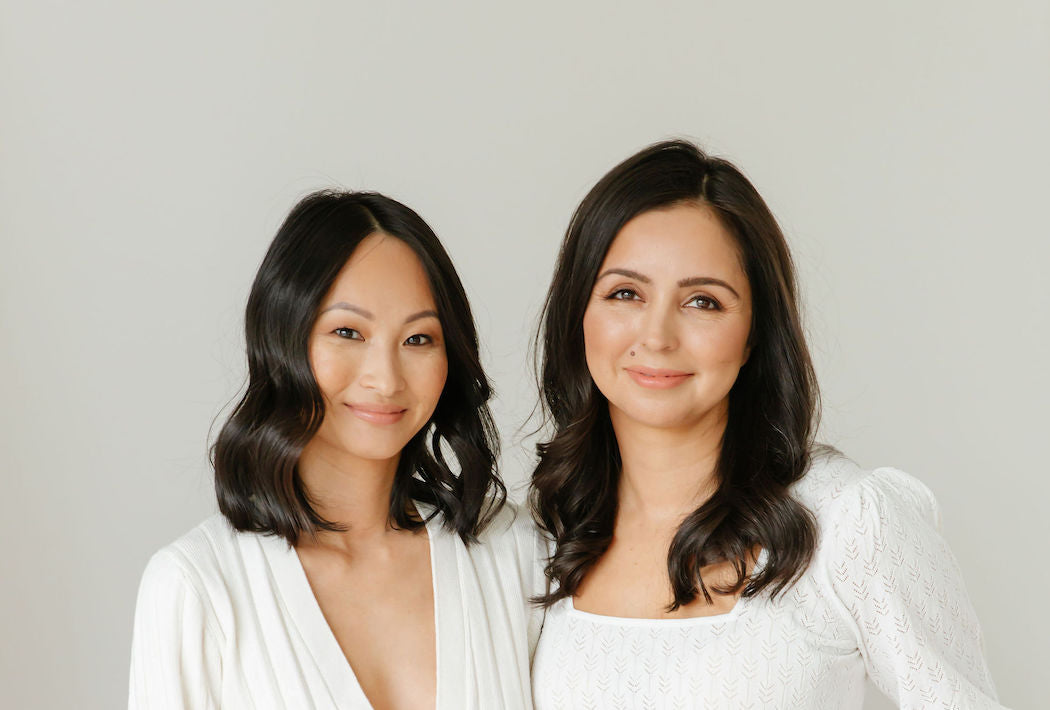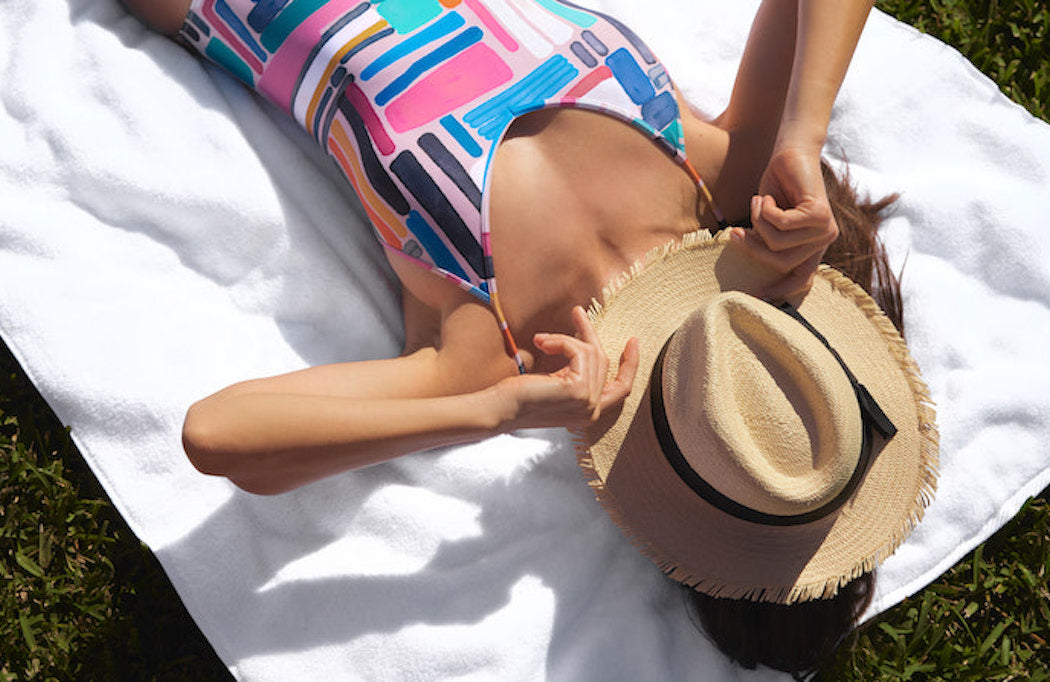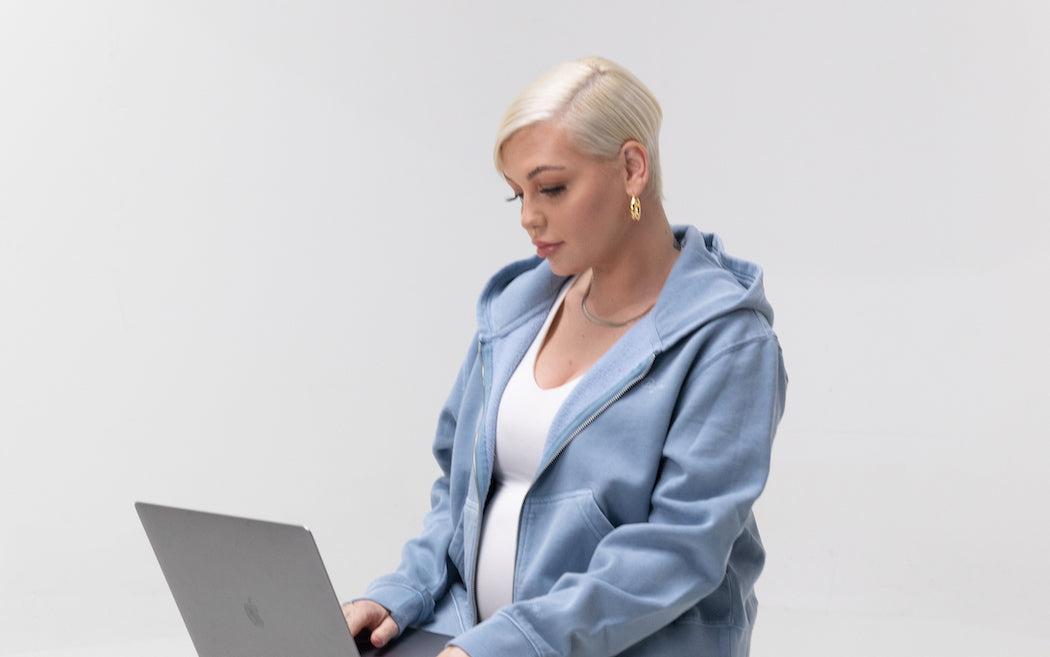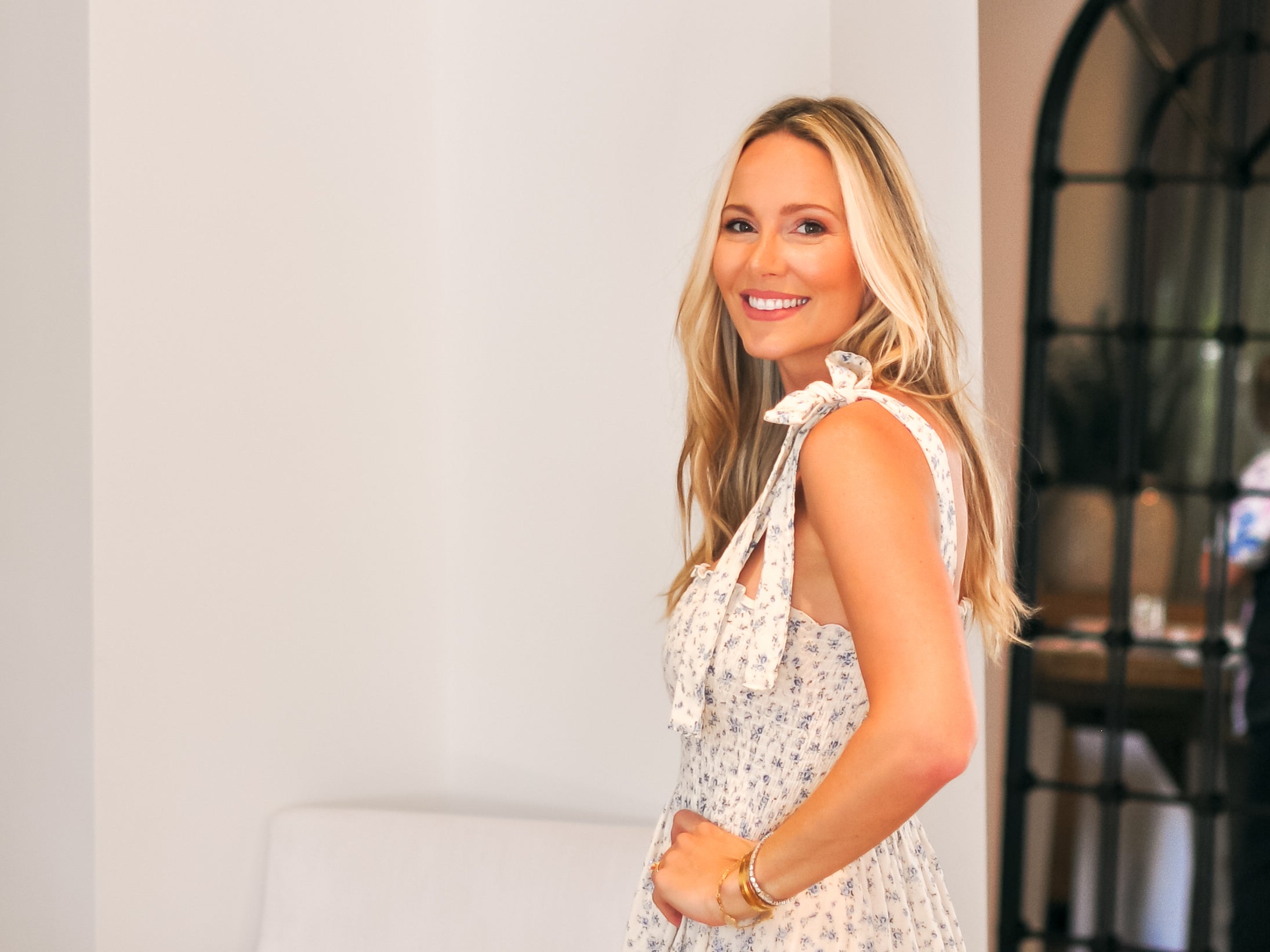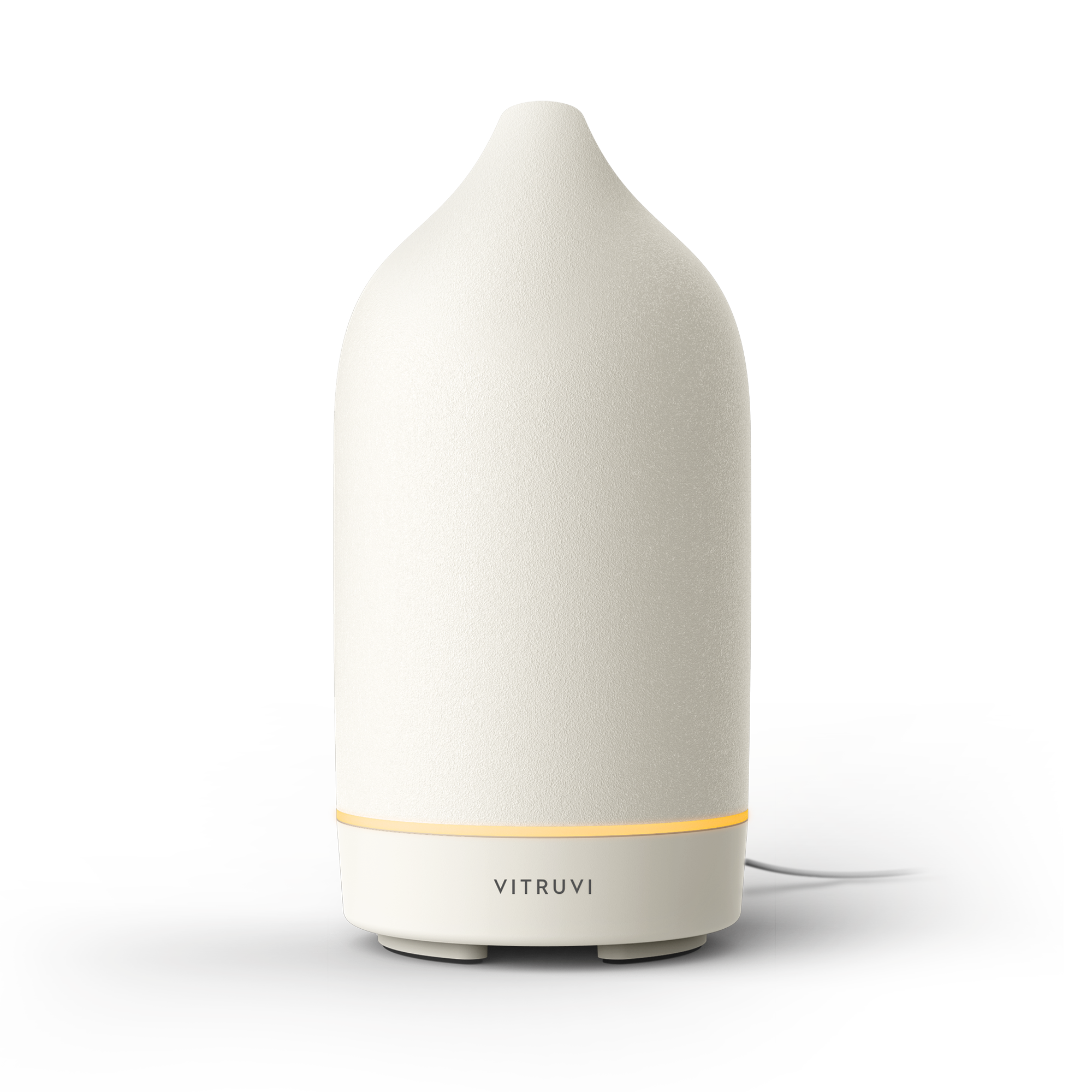Lately, it’s difficult to think about getting dressed up. When we’re confined to living rooms, kitchens, decks, and backyards, the idea of putting on a favourite outfit can be a reminder of the gatherings we’re missing with our loved ones. But as the days stretch into weeks, and who knows, maybe months, getting dressed up for the day can also provide comforting structure, and remind us of who we are outside of our domestic habitats.
“Even before we were socially distancing, I never really went out anyway,” Eliza Faulkner says with a laugh from her Montreal home (this interview was supposed to be conducted in-person at her studio, but in order to maintain social distancing was switched to video chat). “I love dressing up, but I like being comfortable.” Faulkner, who runs her eponymous fashion label, is known for her ultra-feminine but wearable designs. “I want my clothes to make a statement, to be bold and beautiful and interesting,” she says, “but without being fussy and having to think about it too much.”

Her most recent collection for Spring/Summer 2020 reflects this balance: ivory brocade puff-sleeve dresses amp up the drama, while details like ruching at the bust and waist keep it from being baroque. Gentle silhouettes like the Bunni dress, with a drop-waist in linen free of any harsh chemicals, are well-suited attire for waving to friends from the balcony.
Faulker established her line in 2012 on Vancouver Island, after returning from London where she studied at the esteemed Central Saint Martins. While at school, she found herself (and her interest in more maximalist design) to be a bit outsider. “I really always had a thing for lots of femininity, ruffles, bows,” she says. “When I was in fashion school, it really wasn’t very cool. It was the kind of school where everyone would talk about Comme des Garçons, McQueen, Margiela. Everything was really black and greige.”
Her final collection at Saint Martins, inspired by Sophia Coppolla’s 2006 film Marie Antionette, declared her irreverence towards trends. “It had just come out and everyone was still like, ‘Oh, that was a terrible movie,’ but I adored it. The costumes were just incredible. Of course,” she laughs, “now everyone loves it.”
Following her graduation, she worked for some of London’s premiere labels like Erdem and Roland Mouret. “I think what I loved about [Mouret] was his work was so well constructed, so beautifully made,” Faulkner recalls. “I just like things to look a little bit more organic—I wished they were gentler and softer—and that’s where Erdem was so great, his stuff was so feminine.” Her time at these brands is evident in her work even now: proportionate volume and print like Erdem, moments of classic tailoring à la Mouret.

Today, Faulker makes every item, entire collections, within the block of her studio in Montreal’s historic garment district, Chabanel, which is experiencing a revival. “I think there’s more of an appreciation for fashion in general in Montreal,” she says, reflecting on moving her label from British Columbia to Quebec a handful of years ago. “There’s also an industry here. There are so many people making—sewers, cutters—so you can play a lot more. I’m surrounded by a lot of women who have their own business, so you always have someone to talk to and ask questions.” Faulker nods to some of her peers in the neighbourhood such as Heirloom Hats and Jennifer Glasgow (“She tells me who’s a good sewer,” she adds), who make up her community of support.
Faulker is committed to building a community of like-minded shoppers, too, by creating pieces that are as sustainable as can be while also emphasizing the importance of accessibility. “In the early days, I didn’t really understand the business very well. I was buying really expensive fabrics from Italy—20, 25 Euros a metre kind of thing,” she recalls. “It took some time to realize where I sit in the market and find a price point that worked. I wanted to be able to relate to it; it’s important for me to relate to the person, because I’m the customer, too.” Perched a cut or two above fast-fashion prices, Faulker’s brand opens up handmade, local design to those who might not otherwise consider it a feasible option.
As we get dressed to FaceTime with a friend, to make dinner with a partner, to feel closer to normal, it’s a comfort to choose clothes that reflect what we’re thinking more and more about: community, connection, equality, and feeling good again.

